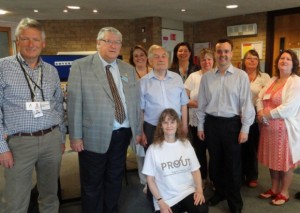Newsbites – Research, Police & Mental Health
Does counselling pupils work – research project
The TES is reporting that researchers are looking for secondary schools to volunteer to take part in a major new study into whether professional counselling helps young people to cope with anxieties. The £835,000 project will provide 18 schools with professional and experienced school-based counsellors at no cost for two years.
School staff will assist to identify pupils who may be helped by counselling and want to take part in the research. Students will then be divided into two groups, with half receiving up to 10 weeks of counselling and the other half being helped by the school’s existing support system.
Read more at – TES: Does counselling pupils work? Research project seeks schools to find answer.
Government considers Police establishing free schools for ‘troubled children’
The Guardian is reporting that home secretary Theresa May has announced that elected police and crime commissioners should be given the power to set up their own free schools to support “troubled children”. The move will be part of a major expansion of the powers of police and crime commissioners into the areas of youth justice, probation and court services to be proposed after their second set of elections take place in May.
The home secretary said that the next set of PCCs should “bring together the two great reforms of the last parliament – police reform and school reform” to set up or work with “alternative provision of free schools to support troubled children and prevent them falling into a life of crime”.
Read more at – The Guardian: May wants police commissioners to set up free schools for ‘troubled children’.
Heads warn more needs to be done over pupils untreated mental health issues
At the start of Children’s Mental Health Week, the BBC is reporting warnings from headteachers that children’s untreated mental health issues could spiral into psychiatric problems later in life unless more is done in schools, with particular concern over the situation in primaries. The National Association of Head Teachers says with a fifth of children having a mental health problem before age 11, it is a key concern. A snapshot survey of 1,455 English heads suggests two-thirds of primary schools cannot deal with such issues.
Read more at – BBC: Heads warn over pupils’ untreated mental health issues.










